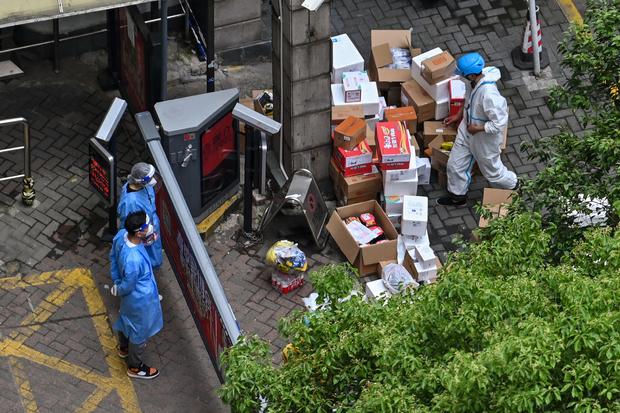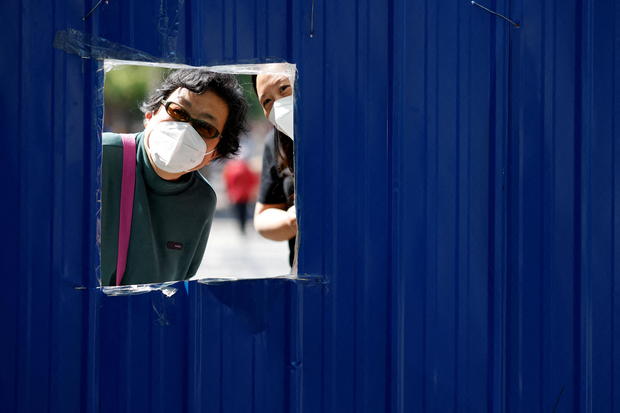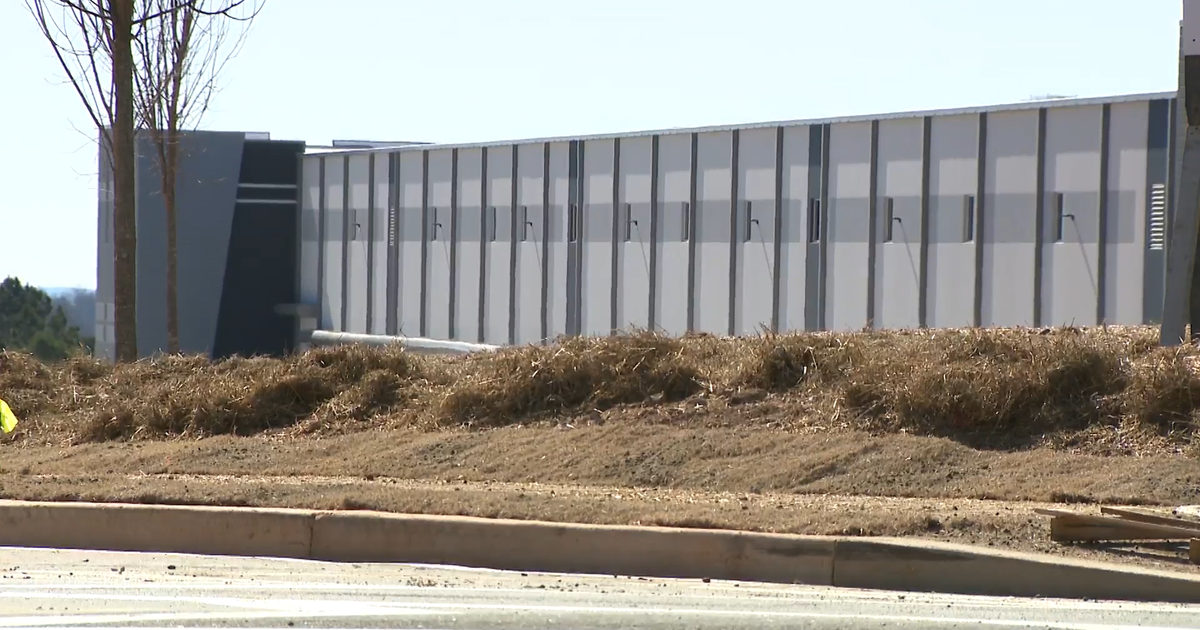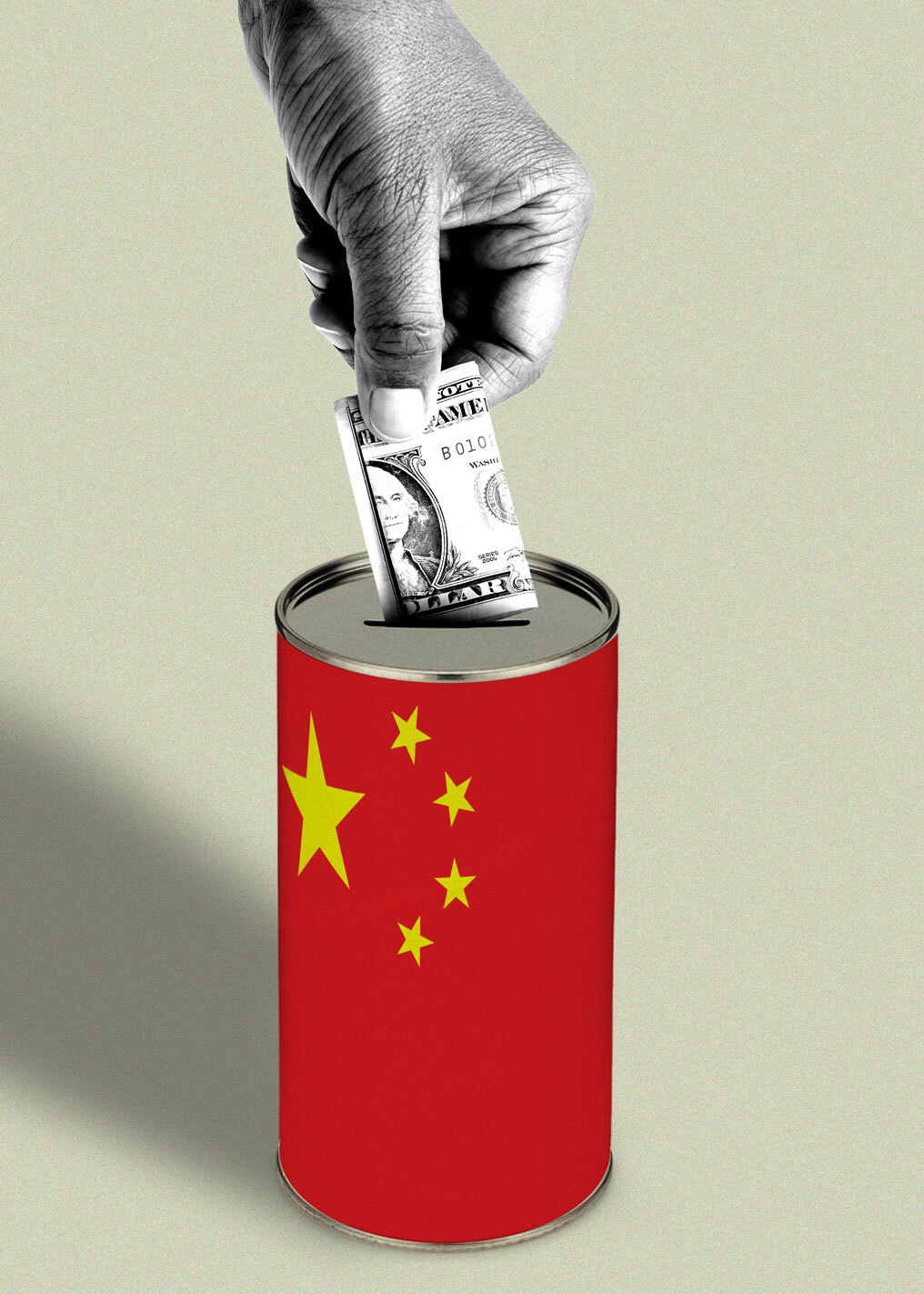Even some COVID-free Shanghai residents say they've been forced into distant quarantine centers
Shanghai — In the middle of the night, Shanghai resident Lucy said she and her neighbors were forced onto buses and taken hundreds of miles away from the locked-down Chinese metropolis to a makeshift coronavirus quarantine center.
CBS News senior foreign correspondent Elizabeth Palmer says that according to Chinese authorities, more than half of Shanghai's 25 million residents have been freed from lockdown conditions, but as the city battles a major COVID-19 outbreak, you'd never know it. The vast majority are still confined to their homes or neighborhoods.
Hundreds of thousands of virus-positive people have been taken to makeshift facilities as China does not allow them to quarantine at home. But some residents who tested negative told AFP that they were also forced out of their homes and taken to camps outside the city, some hundreds of miles away.
"The police told us that there were too many positive cases in our compound and if we carried on living here, we'd all become infected," Lucy told AFP, using only her first name for privacy reasons. "We had no choice."
She said the virus-negative group were sent to a quarantine site containing hundreds of single-room prefab cabins in neighboring Anhui province, about 250 miles away, and that it was not initially clear where they going.
Lucy said she did not know when she would be allowed to return home.
AFP spoke with other Shanghai residents who said healthy, virus-negative people in some housing compounds were sent to other provinces for quarantine. One said his neighbors had protested and refused to join.
Another from the city's Jing'an district told AFP she was taken, along with dozens of people from her residential compound, to a single-room quarantine center in Anhui late one night.
"We all received calls from the neighborhood committee saying that since there are too many positives in our compound, the negatives need to be transferred to hotels for isolation," that resident told AFP, preferring to stay anonymous.
She said they "felt terrified" on seeing the temporary accommodation, and had "lost trust in the Shanghai government."
Shanghai on Monday remained under a patchwork of different restrictions as new virus cases dropped to around 7,000, with 32 dead.
City authorities have imposed a three-tiered system of "freedoms," although stringent local enforcement appeared to still restrict the majority of residents to within residential compounds or neighborhoods.
China's relentless pursuit of a zero-COVID policy has left many Shanghai residents chafing under the tight curbs. The Shanghai government did not immediately respond to a request for comment.
Officials in the economic hub are likely under more pressure than elsewhere to achieve "zero-COVID at the community level" — meaning no transmission outside quarantine centers — according to Yanzhong Huang, senior fellow at the New York-based Council on Foreign Relations.
"When they face strong pressure from above to achieve zero-COVID targets, these heavy-handed, excessive measures become more likely."
"Moving negative people could be considered a pre-emptive strategy, with the expectation that more positive cases may be found if they stay there," Huang added.
Chinese officials are routinely sacked after virus outbreaks for perceived failures in COVID control.
Tens of thousands of close contacts of virus cases have been quarantined in neighboring provinces, according to official news agency Xinhua, but there has been no mention in official media of the relocation of negative cases.
Shanghai authorities have faced wide criticism after they initially announced phased four-day lockdowns in different parts of the city that were not then lifted.
Tall metal barriers were erected around some locked-down compounds in recent days, as part of measures described as a "hard lockdown."
CBS News' Palmer reports that while most of Shanghai remains under restrictions, city officials have made efforts to get essential workers back on the job in a bid to get China's economic hub spinning again. Agricultural workers have been told to return, and even some factories have brought staff back in — but in some cases they're being forced to remain at the factories day and night to limit mixing in the community.
As Palmer reports, China's lockdowns are causing labor shortages and broken supply lines, and U.S. companies have warned they will cost both China's and the world's economy billions of dollars. That's partly why the other COVID outbreak, in the capital city of Beijing, has caused such alarm.
May 1 is a huge holiday in China, but on Sunday, Palmer said Beijing was quiet but for the sights and sounds of mass-COVID testing. Despite 21 million residents being ordered to test multiple times last week, however, cases have continued rising.
Authorities have not declared a sweeping lockdown in Beijing yet, but they're inching that way.
New barricades went up over the weekend around buildings with confirmed COVID cases. Entertainment venues including the brand new Universal amusement park have been closed, and restaurants were only open for takeout over the holiday weekend.





